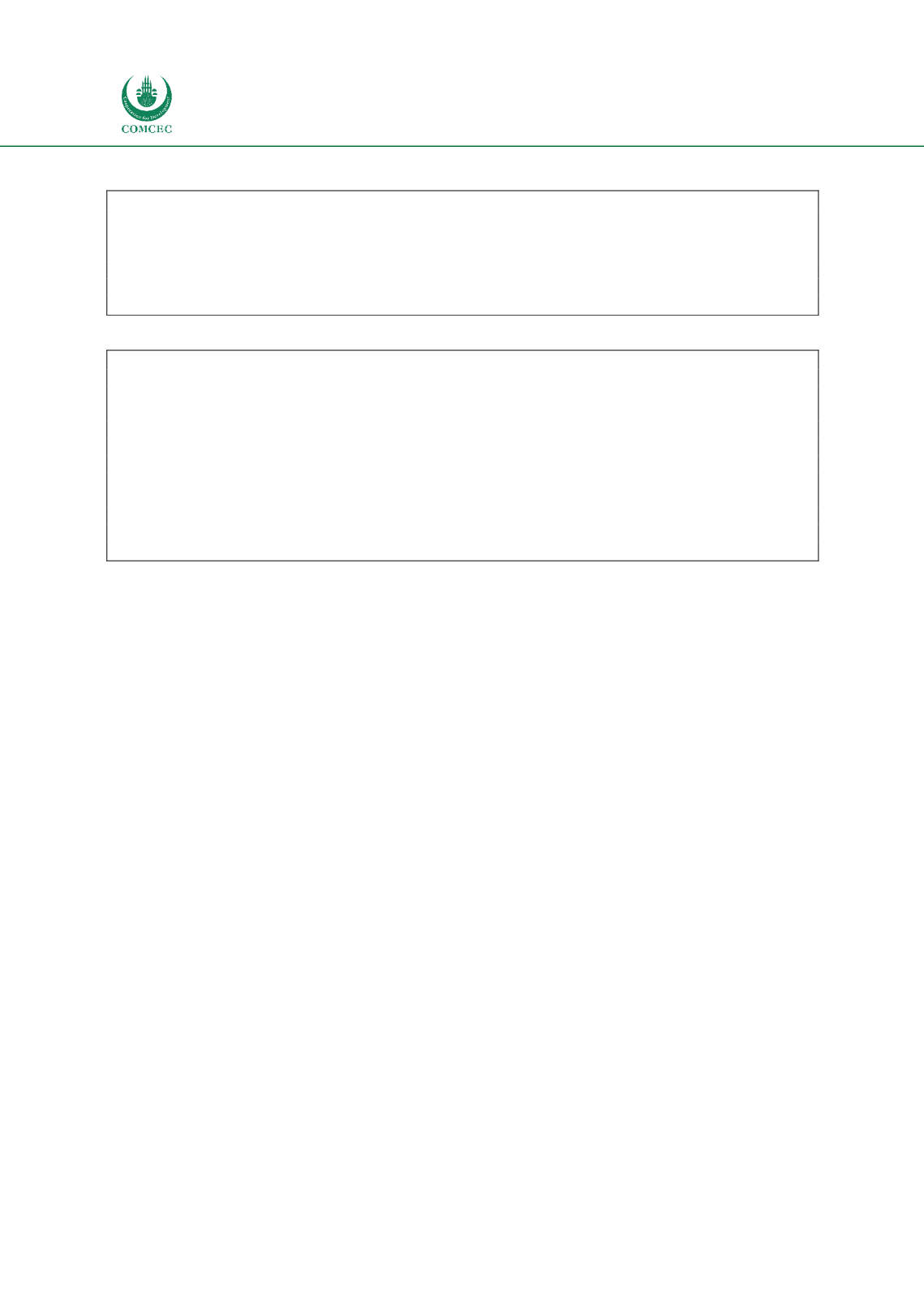

Facilitating Trade:
Improving Customs Risk Management Systems
In the OIC Member States
148
Box 8: Customs Code and Implementing Regulations Support of CRM
Turkey - The TCA has modern legislation aligned with EU customs acquis covering all necessary aspects of the
CRM concept. Turkey’s Customs Code and Customs Implementing Regulation cover the definitions of “Risk” and
“Risk Management,” allowing customs control to be based on risk analysis. Traders are required to submit pre-
arrival information on import and transit operations. Also, to facilitate legal trade, the TCA has introduced the
AEO concept. The post-clearance controls are based on risk analysis. The national legislation confers power to
the TCA to detain/seize the goods, means of transport and persons. It seems that currently, the legal
environment does not set any barriers against the modern CRM.
Box 9: Systematic Electronic Exchange of Data
–
SEED
The SEED system was implemented by the Customs Administrations of the six Western Balkan countries:
Albania, Bosnia and Herzegovina, Kosovo, Macedonia, Montenegro, and Serbia.
The legal basis for the SEED is drawn from the bilateral:
- Customs Mutual Administrative Assistance Agreements (CMAAA), followed by the SEED Memorandum of
Understanding (MoU) / Protocol on electronic exchange of data (which, among other things, are defining scope
of data to be exchanged);
- Recently, the six Western Balkans CAs and Moldova (members of the CEFTA Agreement) adopted “Additional
Protocol 5 to the CEFTA Agreement”.
CEFTA Trade Facilitation Framework and the Additional Protocol 5 is a common legal base for extension of the
scope of the SEED.
Based on the CEFTA Additional Protocol 5, the CEFTA MS will exchange the Phytosanitary and Veterinary
certificates.
Policy Option 5: Establishment of a legal basis for the exchange of security-related
information of high-risk consignments;
There is an important link and a mutual dependency
between the Customs Code and its Implementing Regulation. The Customs Code and its
Implementing Regulation need to be amended to include provisions for the exchange of security-
related information on high-risk data. The legal framework needs to, among other things, define
the data, submission timelines, and the exchange requirements.
To comply with the overriding objective, the OIC MS must fully comply with WCO SAFE
Framework requirements. Therefore, the OIC MS Customs Code and its Implementing
Regulation need to be modernized to incorporate a wide range of SAFE Framework security
provisions.
The OIC MS data protection law should contain provisions that specify that any data collected
and or transmitted by Customs must be treated confidentially and securely and be sufficiently
protected, and it must grant certain rights to natural or legal persons to whom the information
pertains.
The data exchanged must be fairly and lawfully processed; processed for limited and explicit
purposes; adequate, relevant and not excessive; accurate; not kept longer than necessary;
processed by the data subject's rights; secure, and not transferred to third countries that do not
ensure an adequate level of protection.
Policy Option 6: Adoption of legal framework and establishment of the AEO concept;
OIC
MS need to introduce legislation supported by guidelines that will enable it to grant AEO status
(see
Table 16)to any economic operator meeting the following common criteria: customs
compliance, appropriate record-keeping, financial solvency and, where relevant, security and
safety standards.
CAs should be designated as the appropriate authority for receiving, auditing and granting AEO
authorizations. A dedicated AEO Unit should be created. This unit will need to be properly
resourced, and staff will need to be trained.
















